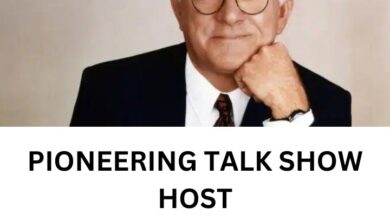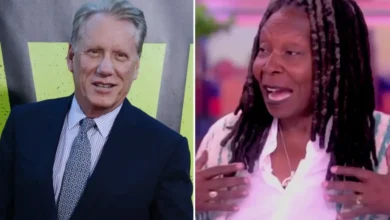Kansas City Chiefs Decline Participation in Pride Month, Calling It “Extremely Woke”

In a surprising and controversial move, the Kansas City Chiefs, one of the NFL’s most prominent teams, have announced they will not participate in Pride Month celebrations this year. The team described the event as “extremely woke,” sparking widespread debate and drawing both praise and criticism from various quarters.
The Chiefs’ front office released an official statement, asserting, “While we support diversity and inclusion, we believe the current iteration of Pride Month has become overly politicized and does not align with our team’s values. We have therefore decided not to participate in any Pride Month events or celebrations this year.”
This decision reverberated across the sports world and beyond, with fans, players, and various organizations taking to social media to express their views. Some praised the Chiefs for resisting what they see as excessive political correctness, while others condemned the decision as a step backward in the fight for LGBTQ+ rights and inclusion.
Supporters argue the team is taking a principled stand against the overreach of “woke” culture, believing sports should be a neutral ground free from political or social agendas. Conversely, critics contend the Chiefs are missing an important opportunity to show solidarity with the LGBTQ+ community and promote inclusivity, highlighting sports’ significant cultural impact as a platform for advocating positive social change.
GLAAD (Gay & Lesbian Alliance Against Defamation) criticized the decision, stating, “The Kansas City Chiefs’ decision not to participate in Pride Month sends a harmful message to LGBTQ+ fans and players. Inclusion and representation matter, and the NFL has a responsibility to support all its fans and players.”
Historically, sports have played a critical role in social change, with athletes and sports organizations often at the forefront of major social movements. The NFL itself has made significant strides in promoting inclusivity, with various teams participating in Pride Month events and supporting LGBTQ+ causes. The Chiefs’ decision contrasts sharply with this trend, raising questions about the league’s future direction.
The Chiefs’ refusal to participate in Pride Month reflects a broader stance on the intersection of sports and politics. The team argues fans come to games to escape divisive issues and enjoy the sport. However, this stance can be seen as aligning with more conservative viewpoints, potentially alienating part of their fan base and creating divisions within the team and its supporters.
The NFL has yet to respond officially to the Chiefs’ decision, but other teams continue to participate in Pride Month celebrations, emphasizing their commitment to diversity and inclusion. This decision highlights the ongoing tension between tradition and progress in the world of sports and underscores the complex role sports play in society.
The Kansas City Chiefs’ decision to opt out of Pride Month celebrations has sparked a significant debate about the role of sports in promoting social change and the extent to which political and social issues should intersect with the sports world. As the conversation continues, it will be important to watch how the team, the NFL, and other stakeholders respond and navigate these complex issues. Whether the Chiefs’ stance will become a broader trend or remain an isolated decision remains to be seen, but it has undoubtedly highlighted the ongoing tension between tradition and progress in the world of sports.






